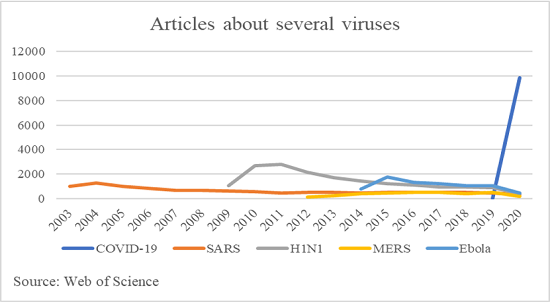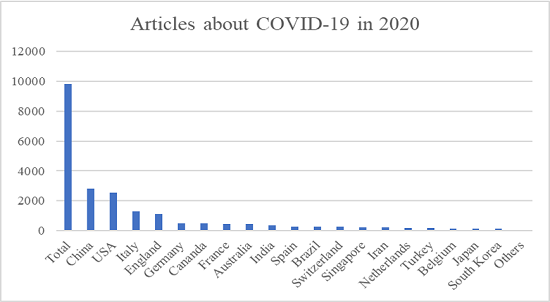From businesses developing technological solutions to face the COVID-19 outbreak to companies producing biodegradable plastic products for hospitals and retail chains: many bio-based activities have proved to be crucial during the novel coronavirus pandemic and are coping better with the economic effects of lockdowns than others.
The European bioeconomy has an annual turnover of around 2 trillion euro and employs almost 18 million people. It represents industries and research organisations that use renewable biological resources from crops, forests, animals and microorganisms to produce food, materials and energy.
Analysts think that the sector, with its forward-looking vision for sustainable growth, can be one of the driving forces behind the economic recovery of the European Union.
According to Tévécia Ronzon, a researcher at the European Commission’s Joint Research Centre (JRC), the diversity of the EU bioeconomy is its strength creating the potential for some sectors hit harder by a crisis like COVID-19 to be buffered by those that are not.
This was observed in past crisis’s such as the financial crash of 2008-2009. In Greece during this time, the job losses in the bioeconomy were not as dramatic as losses in the overall economy. “Employment in agriculture even increased in 2009 and 2010 compared to 2008, thereby recruiting people that had lost their job in other sectors,” explained Ronzon. An opposite trend was observed for secondary employing sectors of the bioeconomy, such as the manufacturing of food, beverages and tobacco. According to her, this example suggests that the diversity of activities in bioeconomy value chains facilitates adaptations to crisis events.
Ronzon was one of several experts to present at a webinar, hosted by the EU project BioMonitor together with the International Consortium on Applied Bioeconomy Reasearch (ICABR), on the importance of the bioeconomy in the post-COVID-19 future.
Carl Pray, a professor in the Agricultural, Food and Resource Economics Department at Rutgers University in the US, believes that the pandemic has created opportunity and demand for new innovations, citing an uptick in research on zoonotic disease and of course, vaccines and treatments for coronavirus.


Pandemic creating R&D opportunities: publications on Zoonotic diseases. The graphics were showed by Prof. Carl Pray during the webinar “COVID-19 and the bioeconomy”, organised by the EU project BioMonitor
Along with increased demand there is an opportunity for research breakthroughs to spillover from one sector to another, especially from areas of medical research which could then contribute to advances in the agriculture sector. For example, Pray thinks that advances in genomics and other biotechnologies could be used to improve livestock and crop health as well as productivity. Disruptions to food supply chains can also increase the demand for vegetable-based products – such as meat from plant proteins - and new platforms for e-commerce.
He also believes that governments can learn from the private and public research funding schemes being employed for coronavirus vaccine research. “We need to have continued investments in biological research and applied research, and we need to change research priorities to things like zoonotic disease, future pandemics and environmental issues,” he said, “and this can be done through encouraging public private partnerships, regulatory changes and developing new structures of research.”
European Union leaders agreed last July on a new long-term budget and coronavirus recovery plan. The €1074.3 billion budget covers the years 2021-2027 and is aimed at supporting investment in digital and green transitions. The new agreement however comes at the expense of R&D funding to Europe’s flagship research program, Horizon Europe, and the European parliament is threating not to approve it in part due to the proposed budget cuts.
Some researchers have been critical of the cuts to Horizon for this very reason, saying they are counter-productive and will hinder both the recovery and resilience of the European Union.
David Zilberman, an economist at UC Berkley, was of a similar mind and used his time at the webinar to advocate for policy rooted in the fact that prevention is always cheaper than adaptation. According to him, the average cost of dealing with flu pandemics since 1918 has been roughly $172 billion, whereas the average cost of prevention efforts needed annually is only $10 billion.
Zilberman also believes the COVID-19 sanitary emergency and resulting economic fallout provides an important lesson: “The pandemic is a rehearsal for climate change and it shows that if you don’t spend on mitigation the cost of adaptation is much worse.” And, this is where the bioeconomy can play a role in both prevention of the next catastrophe as well as the recovery from the current one. The sector is key to the goal of decarbonisation and moving from non-renewable to renewable energy sources and products, meaning new policies should enhance this transition and endorse new, essential biotechnologies.
The tense nature of the EU budget talks and the global nature of the coronavirus crisis further highlight how governments, within and outside of Europe, need to cooperate. “This will be the big test for the EU,” said Zilberman, “I think even though every country is looking at itself, we realize that we have to solve the problem together.” He is optimistic and feels this is an opportunity for science to re-assert itself and for the EU to have a more enlightened policy about technology.
Robert M’barek, an economist from the JRC, also wished the same turnout and underlined the fact that central-eastern part of the European Union should see this as an opportunity to tackle the crisis, in particular in those countries – such as Poland and Romania - that have an important biomass, bioenergy and bioeconomy potential which has not been fully used.
“The pandemic will stay with us, living with the novel coronavirus will be the new normal. The debate about appropriate responses and implications for the bioeconomy needs to and will continue,” concluded Justus Wesseler, coordinator of BioMonitor.
youris.com provides its content to all media free of charge. We would appreciate if you could acknowledge youris.com as the source of the content.